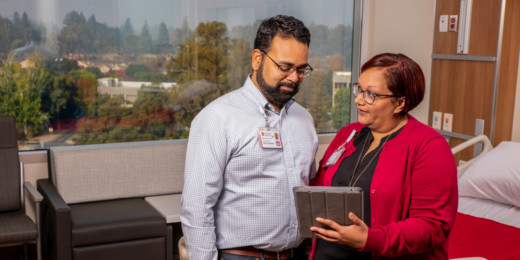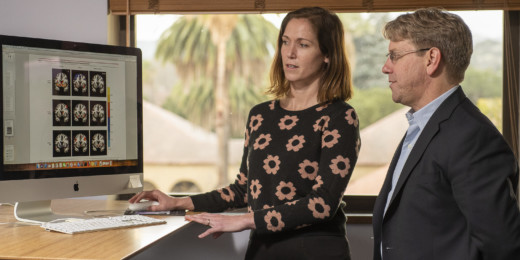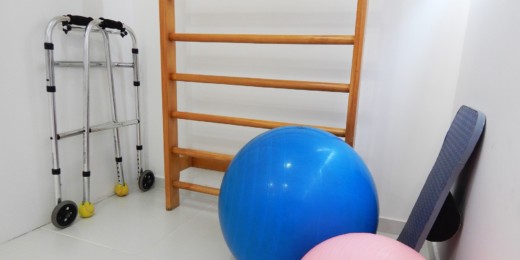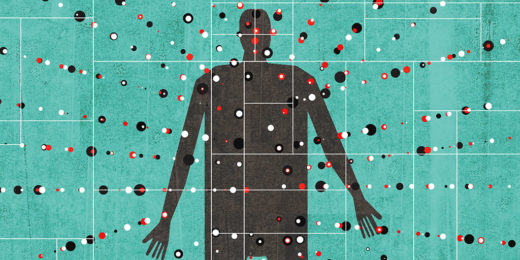Stanford researchers are tackling the problem of post-intensive care syndrome with artificial intelligence technology that detects patient mobility.
Author: Amy Jeter Hansen
Apple Heart Study shows how wearable technology can help detect heart problem
Stanford Medicine researchers presented preliminary findings of a study looking at the ability of smartwatches to detect symptoms of atrial fibrillation.
Innovating to help newborns breathe
Former fellows with the Stanford Byers Center for Biodesign developed a resuscitation device to help clinicians in lower-income countries save newborns.
Access to doctors’ notes and other health records engages Stanford patients
Meeting consumer expectations and empowering patients fueled Stanford Health Care's drive to share doctors' notes and other records securely with patients.
Digital enhancements planned for new Stanford Hospital
The new Stanford Hospital will include an array of technology to optimize the patient, and clinician, experience, including communication tools.
AI will not solve health care challenges now, but there are innovative alternatives, researcher writes
Artificial intelligence holds promise for transforming primary care in the future, but some medical practices are demonstrating how to innovate now.
Computer vs. patient: Fighting for residents’ attention
Medical residents spend more than five hours a shift in front of computer screens, much of it reviewing notes, Stanford research has found.
Heroin as a repugnant market: Is it time for a different solution?
Alvin Roth, a Nobel laureate and Stanford faculty member, explains how the economic concept of repugnant markets applies to heroin in the United States.
Why hasn’t digital technology transformed health care delivery?
The health sector should focus on consumer needs to better harness the promise of digital technology, writes a Stanford Medicine professor and a colleague.
Costs of gun-related hospitalizations, readmissions examined in study
Between 2010 and 2015, the average annual cost of hospitalizations for gunshot wounds was $911 million, with $86 million for readmissions within six months, a Stanford study finds.
Watch list: 10 recommended films about medicine
Stanford Medicine film buffs recommend documentaries, feature films and short videos that offer compelling looks at the medical world.
Brain scans offer clue to drug relapse risk, study finds
Small trial conducted by Stanford researchers links activity in the brain's reward processing system with drug relapse in patient cohort.
Watching movies and learning about medicine
A Stanford Medicine course explored medicine through the filmmaker's lens, with themes of empathy, education, nonverbal communication and storytelling.
How early physical therapy can lessen the long-term need for opioids
Patients who undergo physical therapy soon after a pain diagnosis are less likely to use opioids in the long term, a Stanford-Duke study finds.
Can artificial intelligence help doctors with the human side of medicine?
Two leaders of Stanford’s Presence Center — Abraham Verghese and Sonoo Thadaney Israni — explore how AI can enhance the human side of patient care.
Tech-savvy clinicians take electronic health records to the next level
As the medical world transitioned to electronic health records, Stanford clinicians stepped up to trouble-shoot. Now they're innovating patient care.















